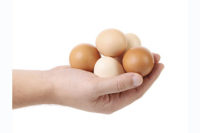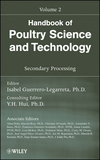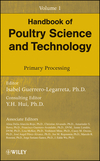Cracking the Cage-Free Egg Challenge: The Vital Next Step

2016 may be known as the year of the cage-free egg. The number of restaurants and food retailers making public pledges to serve cage-free eggs reached a tipping point, with Walmart, Kroger, CVS, and Albertsons all making statements in just the past several weeks. It’s an encouraging trend in corporate responsibility for farm animal welfare.
The problem most companies now face is sourcing from a very limited supply chain. Currently, cage-free eggs make up only about 7 percent of the market. The assumption is farms will convert conventional egg production to cage-free over time — which is why many companies put a 10-year timeline on their pledges.
But there’s a new issue companies should consider: How to demonstrate to consumers you’re doing what you promised and meeting their expectations for cage-free eggs.
Recently, a Tampa Bay Times investigation revealed a number of area restaurants engage in “farm to fable” marketing. They found some local-food restaurants were in fact serving produce from California and Mexico. Another establishment serving “Florida” crab was in fact serving crustaceans from the Indian Ocean.
It’s important to build trust with customers. And the public is a skeptical crowd these days. A 2015 Gallup poll found that only 9 percent of Americans trust corporations a “great deal,” while a mere 12 percent trust Big Business “quite a lot.” Millennials in particular have a high distrust of institutions from Wall Street to the media to the government, according to Harvard’s Institute of Politics.
But third-party certification can help earn and deserve that trust. According to a 2011 survey from the Food and Drug Administration and other government agencies, consumers have a “high positive attitude” toward certified food products. The national survey found that a majority of Americans believe they are safer than their non-certified counterparts.
That’s where positive partnerships come in: Collaboration with third-party certification programs is the best way for large corporations to verify they are meeting consumers’ expectations and are willing to be transparent in the transition to cage-free egg production and other humane systems such as Enriched Colony, free-range and pasture-raised. These independent groups provide common-sense solutions to help ensure companies eager to implement compassionate animal welfare standards get the equipment, systems, standards and training right.
That’s why American Humane Association launched its American Humane Certified™ farm animal welfare certification program more than a decade ago to certify eggs, meat, and dairy products as humanely produced — helping to ensure the proper treatment of animals in agriculture and providing guidance to enlightened producers, retailers, food service providers and consumers.
We should remember there are reasons it’s taken so long for humanely raised products to hit mainstream markets: Going completely cage-free is a lot easier said than done, especially for major corporations overseeing massive supply chains. And the cost of cage-free eggs is higher because of costs of retrofitting or building new housing and retraining workers, leading many customers to choose less expensive options. Companies must crack these cage-free egg challenges in order to ensure their well-intentioned commitments to animal welfare are realized.
Furthermore, switching to cage-free eggs alone doesn’t automatically guarantee more humane living conditions for hens. These new housing systems must be thoughtfully designed and operated with careful attention to welfare of the hens and food safety. Consider the exacting standards created by American Humane Certified, the nation’s first, largest and fastest-growing animal welfare certification effort. American Humane Certified guidelines were built upon more than 200 science-based welfare standards and developed with input from leading animal science experts, veterinarians and animal husbandry specialists. The program’s rigorous requirements for certified cage-free systems spell out everything from acceptable population density rates and space allowance to the proper length and elevation height of the linear perches and the nest boxes.
Using science-based welfare standards provides the structure and guidance necessary to ensure smooth cage-free transitions for both farmers and hens. Consumers also realize corporations aren’t always the best arbiters for what’s good for animals. For companies, using independent welfare certification and audit programs demonstrates transparency and establishes defensible, humane standards consumers trust.
Corresponding certification labels on food products help direct conscientious customers to the humane options in line with their values. Research shows customers reward these ethical brands: More than three-quarters of participants in American Humane Association’s Humane Heartland Farm Animal Survey said they were very willing to pay more for humanely raised eggs, meat and dairy products. In ranking the relative importance of various food labels, “humanely raised” earned the highest score, surpassing other well-known labels, including “antibiotic-free,” “organic” and “natural.”
The cage-free commitments of leading U.S. corporations are important steps in the right direction for farm animal welfare. Teaming up with third-party certification programs is the most effective way for these good eggs to verify that the laying hens were housed in genuine cage-free systems and that their well-intentioned pledges don’t get scrambled — something consumers, corporations, and animals can all celebrate.
Dr. Robin Ganzert is president and CEO of American Humane Association
Looking for a reprint of this article?
From high-res PDFs to custom plaques, order your copy today!








